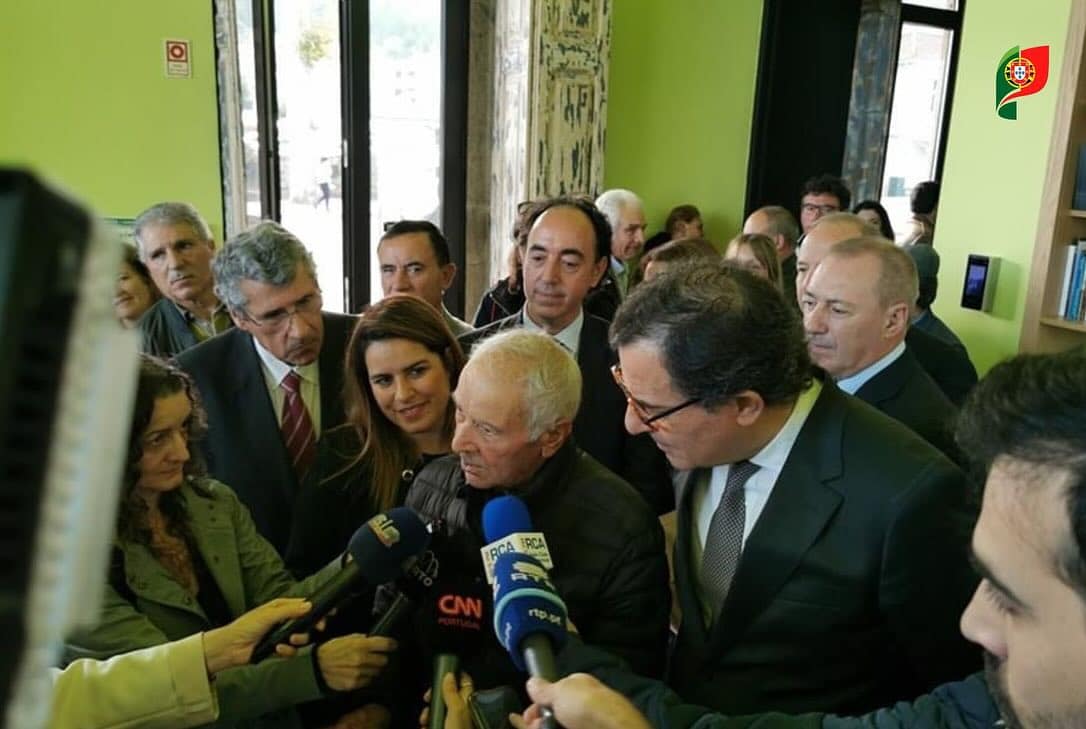Government focused on positive PR as threat of new elections looms ever greater
The first ‘easy payments’ to farmers affected by recent wildfires in Portugal’s northern and central areas have already gone out, with the minister for territorial cohesion very much in evidence today in Vila Pouca de Aguiar, one of the municipalities that suffered the most.
The reality is that Portugal’s AD government needs good press: the approval of the State Budget for next year is a long way from being ‘in the bag’; the threat of new elections is but a breath away (as Porto mayor Rui Moreira stressed this morning).
Thus ‘feelgood stories’ are the order of the day – and Lusa has produced this one focusing on 94-year-old landowner Albertino Pires who “wants help to replace” his burnt trees through extraordinary financial support that the government estimates could cover between 5,000 and 8,000 farmers affected by last month’s fires.
Albertino’s list of losses was “handwritten and handed directly to the Minister of State and Territorial Cohesion, Castro Almeida, who today, in Pedras Salgadas, in the municipality of Vila Pouca de Aguiar, in the district of Vila Real, marked the delivery of the first payments of up to 6,000 euros to farmers”, writes Lusa.
“Castro Almeida took the paper and handed it to the mayor of Vila Pouca de Aguiar, Ana Rita Dias, so that the damage could be confirmed on the ground and then the payments made”.
Albertino showed that he had lost “olive trees, chestnut trees, walnut trees and a cherry tree (…) emphasising that he still feels strong enough to recover his land.
“If I was 20 years younger, I’d have put the fire out by myself”, he told reporters, estimating his losses at around €5,000.
Castro Almeida stressed that this process of supporting affected small farmers will ‘dispense with a lot of paperwork’.
In the case of Albertino Pires, his handwritten list will be used to start an application for special funding: technicians from the town hall and the Northern Regional Coordination and Development Commission (CCDR-N) will then confirm the losses.
“And then we pay you the next day. That’s how it should be,” the minister told Albertino.
The financial support offered by the government reaches a maximum of €6,000 “which does not require farmers to submit supporting documents”.
For aid above this amount, documentation will already be required.
Applications have been open since last Thursday and there have already been bank transfers, says Lusa, highlighting the case of Ondina Lagoa, 35, from Zimão, also in Vila Pouca de Aguiar, who lost 300 bales of hay to feed her 100 sheep and 40 cows, as well as agricultural implements.
The young farmer said that the money was ‘fundamental’, as was the speed of response.
“It was an easy process. All I had to do was tell them what had burnt (…) I didn’t need any documents. It was very good and I didn’t expect it to be so easy,” she told Lusa.
Ondina has already received a donation of 65 hay bales, so her priority is to repair the front of her tractor, which was damaged in the fires, “because she uses it to put hay in the animals’ troughs”.
Castro Almeida added that applications for this special help can be submitted until November 30. He estimates that, by the end of the year, “a large proportion of those affected will have received the equivalent money.
“The process started and now it’s going on and on. It took 25 days to start and now every day there will be payments below or above €6,000 – either for the reconstruction of houses or factories and municipal equipment and infrastructure,” he told reporters.
Clearly glad of the speed with which aid is being granted, mayor Dias said the greatest challenge for the municipality – 20% of which stands charred and blackened from the fires – is how to reinforce prevention as the main means of firefighting into the future.
And when journalists returned to the wider subject of whether or not this government can weather the passage of the 2025 State Budget, Castro Almeida’s response was that he is “very confident” that the document will be approved because “there is no reason for it not to be”.
Source material: LUSA


























